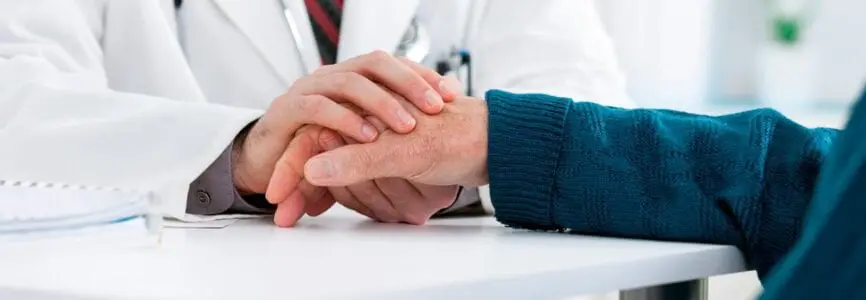Bioethics Forum Essay
What I Practice: Democratic Medicine
When people ask me what kind of medicine I practice, I most often say family medicine. Now, however, I am also apt to say I practice “democratic medicine.” What is democratic medicine? Less a style than a way of being, it embodies five principles born of democratic values related to history, duty, community, citizenship, and unity.
History: Working with patients is an opportunity to enter into their histories, reformulated in the moment given their presenting problems. I aim to nudge patients along a healing process that may or may not involve a cure. No clinical visit is an end in itself. Each, in addition to its healing potential, is an invitation for patients to develop their unique capacity for improving their physical, social, psychological, and existential well-being.
Duty: Working with patients is an emergent pursuit, in that I respond to and address needs that arise in the dialogue that makes up the vast majority of clinical encounters. It is my duty to use this time wisely, inviting patients to “shared presence” — in which physicians and patients enter into a momentary state of being, built on mutual trust and respect, that facilitates healing — as I stay alert to recognizing both signs of suffering and evidence of resilience.
Community: My work with patients extends beyond the confines of any examination room or hospital ward. It encompasses an awareness of the complexity of human relationships and a recognition of how nonbiomedical factors influence disease and illness. I see my patients as individuals in communities with others, part of a web of life that is strongly influenced by group behavior, collective decision-making, and public discourse.
Citizenship: Through my work I urge patients to assume responsibility for engaging in health-promoting activities within their reach, given their capabilities. I also counsel them to join with others in collective action that promotes family, community, and cultural well-being, knowing that we all are, metaphorically speaking, in the same boat. As human beings, we share a common trajectory: we are born and we die. It is what we do in the interim, in the thick of our lives and in concert with others, that matters.
Unity: Out of many, one. E pluribus unum. We are stronger and more resilient together than we are alone. I work to help people move toward this awareness, congruent with the contexts of their lives, at their own pace and in increments they can manage. It is my hope that they come to embrace the idea that our individual well-being is intimately connected to the well-being of others, and will act in accordance with this understanding.
These values inform my clinical practice in several ways. In the way that I look at, listen to, and care for patients with empathy. In my choice of words, using language that is encouraging rather than disparaging. In my decisions regarding treatment, being appreciative of the social and built environments in which people live, of the challenges they face, and of the confusion and anxiety that they—that we all—endure in the face of illness. In my expressed desire to strive for inclusivity, knowingly trying to work “with” my patients, rather than just “for” them.
Why is democratic medicine important?
The glib answer is that all medicine is political in some fashion or other, and that, to use an old adage, “Politics is too serious a matter to be left to politicians.” For me, practicing democratic medicine reaffirms the conviction that my work has meaning beyond diagnosing and treating patients’ diseases. It calls me to be my best professional self. Democratic medicine is an expression of values I hold dear: to see patients as real people, to hear their stories with curiosity and concern, and to recognize the inherent worth and dignity of every human being with whom I come into professional contact. It is what I can do, in the small space I share with my patients, to move the world from fear toward compassion and from prejudice toward equity.
Nowadays, democracy writ large seems increasingly fragile, threatened by many forces well beyond the places my patients and I occupy. Practicing democratic medicine is one way for me to express the belief that more important than any grand ideology are the virtues we hold dear as a profession and make manifest in our daily endeavors. At the top of my list of virtues is democracy, and with it the inclination to explore, the willingness to share, and the commitment to walking, alongside others, the path established upon the ideal of liberty and justice for all.
William Ventres, MD, is the Ben Saltzman, MD, Distinguished Chair of Rural Family Medicine in the Department of Family and Preventive Medicine at the University of Arkansas for Medical Sciences in Little Rock.
45% of The Hastings Center’s work is supported by individual donors like you.
Support our work.













